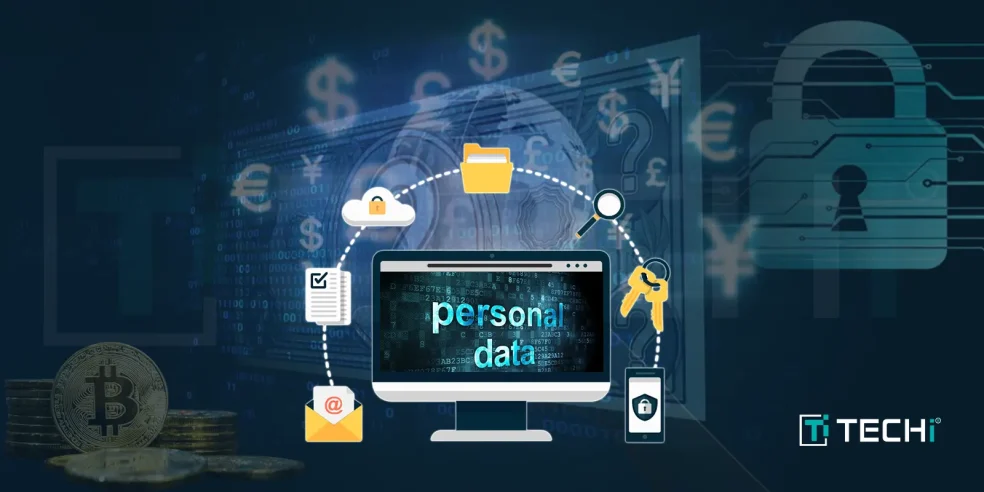Imagine a world where money is not the most valuable asset, your data is. Every time you browse, shop, or interact online, you are not just a user, you’re a product. Cybercriminals don’t care about your name, age, or bank balance, they care about your data because, in the digital age, information is power. From corporations to hackers, everyone is in a relentless race to collect, trade, and exploit this new form of currency. Whether it’s used to predict your next purchase or steal your identity. One thing is clear, data rules the internet, and those who control it hold the keys to the modern world.
The Reality is that:
You are not just surfing the internet, you are feeding it. Every action taken by you, every click, every search, every interaction, adds to an enormous digital marketplace where personal data is most valued. This is an economy where you are not merely a consumer but also the merchandise, and your information is the price you pay to enter it.
Huge tech companies have continuously brushed up their data-collecting techniques, from Facebook-Meta to Google to TikTok, all collecting data for their service to users. AI-driven analytics and machine learning developed the first truly accurate profiles of users. Not too long ago, these tech giants were challenged over their secrecy in handling user data, and today, that very issue is ubiquitous across all digital environments. As human life becomes more integrated with the internet, through wearables, smart assistants, and interconnected apps, more and more personal data is being captured, processed, and monetized.
The Rise of Big Data
Big data means the large amounts of structured and unstructured data being generated every day from Internet activities, smart devices, and digital transactions. Big Data was first used by John Mashey, a computer scientist and former chief scientist at Silicon Graphics, in the 1990s to describe the communications environment. With the ability to process and analyze very large datasets, industries were allowed to develop insights and predict user behavior with a precision never-before-seen.
- Big Data aids decision-making in organizations regarding various aspects by providing insights from large datasets.
- It identifies patterns and trends, allowing for better predictions and strategic planning.
- Big Data, AI, and machine learning work together to automate smarter decisions.
- Big Data forms a significant part of customer personalization by assessing preferences, behaviors, and interactions.
- In the medical field, Big Data makes diagnoses, enhances treatment outcomes, and helps produce customized medicine.
- Big Data is used in the financial sector to detect fraud, assess risk, and optimize investments.
- In retail, Big Data is used to help manage inventories with better forecasting of demand and enhancing customer experience.
- Big Data will continue to grow with the increasing interconnectivity of devices (IoT) thereby providing businesses with many opportunities.
AI’s Impact on Big Data and the Surge of Digital Currency
AI is transforming the way we look at and deal with data, unleashing great possibilities into the world of Big Data and changing the face of digital currency. In this data-oriented epoch, AI is more than an instrument, it is the engine driving so many technologies today, especially when coupled with Big Data.
AI is used for the analysis and processing of huge amounts of data at lightning speed, giving businesses valuable insights that can affect decisions, marketing strategies, and consumer behavior. Businesses can react to trends and consumer demand with AI even before its very conception, thus polishing their advertising strategies and optimizing their pricing policy and customer experience, almost in real-time.
The pattern recognition abilities of AI across large datasets are particularly useful to improve decision-making anywhere from flagging irregularities in financial transactions to forecasting price shocks in markets. Coupled with Big Data, AI transforms into a super-enabler of innovation through predictive analytics, increased operational proficiency, and more intelligent decision-making across sectors.
Meanwhile, Digital Currency, like Bitcoin and Ethereum, is becoming important for the invigorated scope of a global economy. Digital currencies are decentralized, secure, and able to conduct almost instantaneous payments across a border without the hindrance of conventional banking systems. Thanks to blockchain technology, digital currencies enforce trustless transactions: validation within their distributed ledger system keeps transparency and security from potential shame.
AI thrives in the world of digital currency as patterns of transactions are studied to optimise the trading strategy with the help of machine learning algorithms. Predicting fluctuations in cryptocurrency markets is a meaningful skill for any trader and investor since it allows for strategic decision-making in volatile markets. Acceptance of this technology could further assist in the detection of fraudulent activities while securing digital wallets and cryptocurrency exchanges.
Moving forward, the integration of AI, Big Data, and digital currency will create and develop more secure, efficient, and personalized financial systems, leaving every business and individual to find ways to ride this transformation. AI and digital currency will go neck and neck to disrupt the traditional banking systems to build a more connected and data-laden economy.
Also Read: 17 Amazing Facts About Wikipedia
Why Is Your Data So Valuable?
The answer is simple:
It is because the business operates with data. Businesses now run on hyper-personalized advertising, predictions through analytics, and artificial intelligence motivating insights into their lifestyles. Companies have moved beyond targeting customers based on demographics-they now foresee what each user wants before they state such. The data that they have gathered decides what kind of advertisement you see, which recommendations appear on your feed, and even the price you may get on shopping sites.
Ethical Concerns and Regulatory Challenges
The new era of AI-powered surveillance capitalism brings different ethical problems than those that were once considered mere data collection. Privacy debates have shifted from social media in 2012 to biometric data voice recognition today, with behavior tracking already in the mix. New attempts at introducing legislation such as that of the EU concerning GDPR and the emerging statutory regulations on privacy in the U.S have seen the governments come up with measures trying to regulate the exploitation of data. Enforcement remains erratic and the tech giants stretch the bounds of ethical data usage.
GDPR: Protecting Individual Information in the Digital Economy
One important piece of European legislation aimed at safeguarding privacy and personal information is the General Data Protection Regulation (GDPR). GDPR offers a robust framework that gives consumers more control over their information while guaranteeing businesses handle data responsibly in the current digital era, where personal data functions as a kind of currency.
Key GDPR Principles:
Data Transparency: Businesses are required to reveal the methods by which they gather, keep, and utilize user data.
User Consent: Without the express and unambiguous consent of users, businesses are not permitted to acquire personal data.
Right to Access: People are entitled to ask for and see the information that businesses have about them.
Right to Be Forgotten: People have the option to ask for their personal information to be removed from business databases.
Data portability: Data portability refers to the capacity of users to move their data between service providers.
Strict Security Measures: To safeguard personal data, businesses must put in place robust security measures.
Serious Penalties: Violations of the GDPR may incur fines of up to millions of euros.
Why Does GDPR Matter?
Personal information is a useful resource for online businesses. However, user privacy must be balanced with its gathering and utilization. By prohibiting the misuse of personal data, GDPR guarantees that businesses conduct themselves ethically and transparently. Despite being a European rule, it has an impact on businesses worldwide because all companies who handle data belonging to EU people are required to adhere to GDPR.
Since personal data is now the main currency of the internet, this rule is a major step in protecting it.
The Hidden Cost of Free Services
Understand, consumers, that every free service costs something. Be it a Google search, sharing something on Instagram, or using a generative AI tool, whatever you do, you are paying-not in dollars but with insights into your preferences, habits, and behaviors. Convenient internet makes people accustomed to trading their privacy-all at times without even reading the fine print-for convenience.
Becoming Digitally Responsible
And 2025, becoming digitally responsible would mean understanding these trade-offs. Privacy tools, encrypted messaging, and browser extensions that block trackers have become the must-haves for those wanting to minimize data exposure. Quite frankly, even if we are hyper-social and connected, we are giving more data away. Online seems like a free service, but make no mistake, the currency that runs it is and always will be personal data.
Some key statistics related to personal data, Big Data, AI, and digital currency:
- 90% of the world’s data was generated in the last two years alone.
- Every person generates 1.7MB of data per second on average.
- Today, 8 in 10 (80%) business leaders say data is critical in decision-making at their organization.
- Google processes 8.5 billion searches per day, gathering vast amounts of user data
- Artificial Intelligence is projected to contribute $15.7 trillion to the global economy by 2030.
- The global Big Data market is expected to reach $273.4 billion by 2026.
- Blockchain technology could reduce banking infrastructure costs by 30%, saving $12 billion annually.
- Bitcoin processes over 400,000 transactions daily, demonstrating the growing adoption of digital currencies.
- 74% of consumers are concerned about how companies use their data.
- The global digital advertising industry, fueled by personal data, is valued at over $600 billion
Resource:
- https://theconversation.com/your-personal-data-is-the-currency-of-the-digital-age-146386
- https://www.forbes.com/councils/forbestechcouncil/2020/02/20/in-the-digital-age-our-data-is-currency/
- https://www.eff.org
- https://www.wired.com
Also Read: 5 Reasons That Social Media May Never Die




